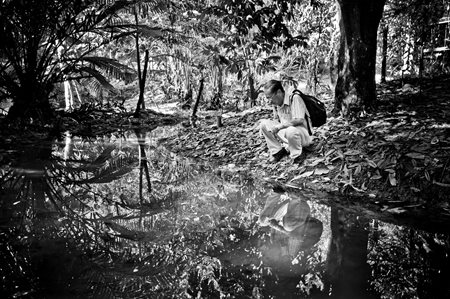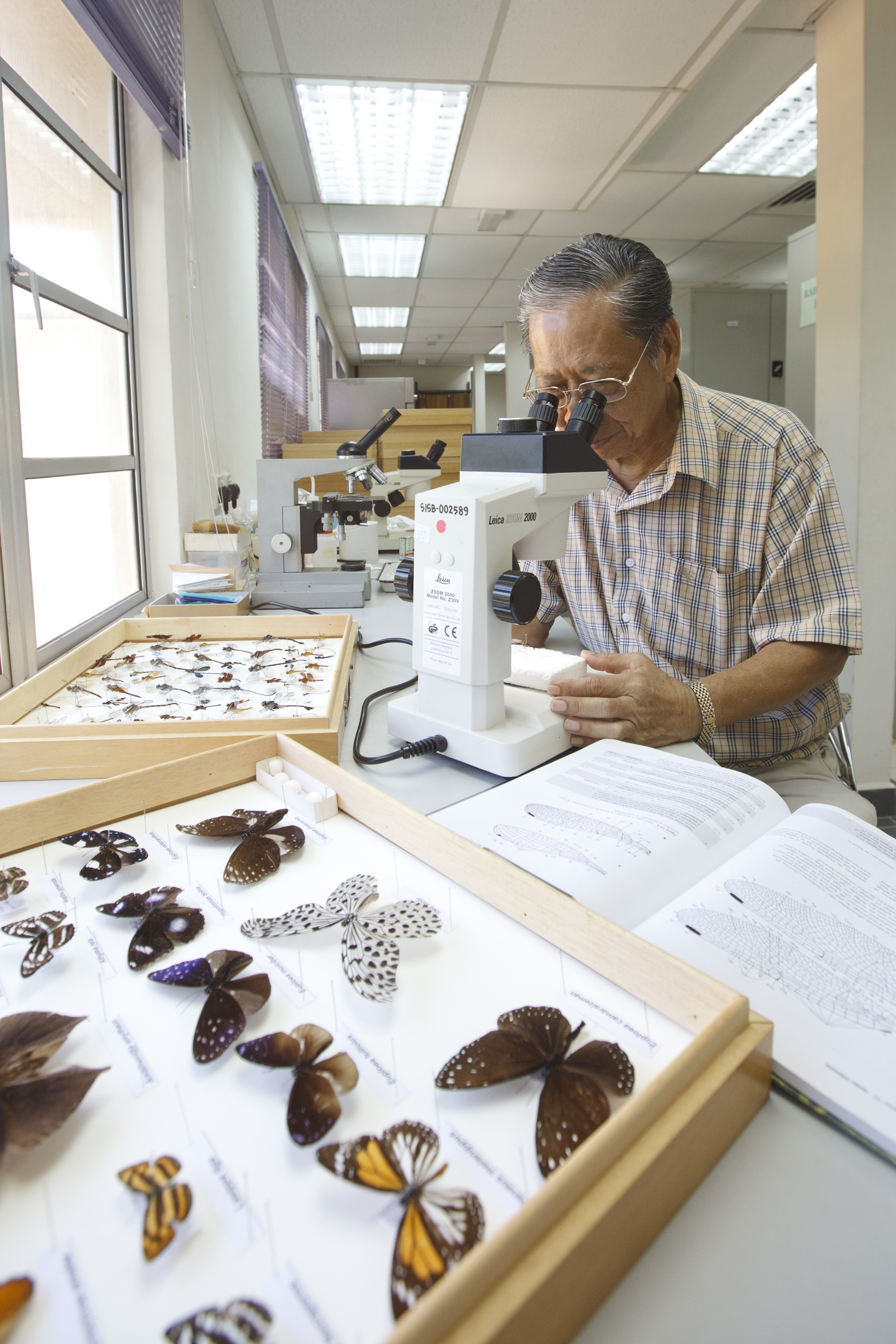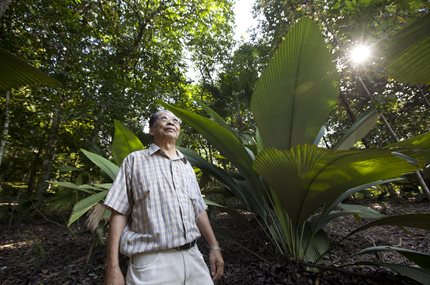
How School Field Trips Ignited a Love for Biology
Professor Emeritus Dr Yong Hoi Sen first fell in love with biology while on field projects during his sixth form studies at the Victoria Institution in Kuala Lumpur.
Years later, he would become the first Malaysian to hold the Chair of Zoology at the University of Malaya and is currently Professor Emeritus at the Institute of Biological Sciences, University of Malaya.
Over the years, Professor Dr Yong has discovered many new species, recorded new living organisms and confirmed the occurrence of many other species in Malaysia.
In 1995, Professor Dr. Yong was appointed as a Foundation Fellow of the Academy of Sciences Malaysia by the Government of Malaysia; subsequently, in 2002, he was appointed a Senior Fellow with the title Academician, and received the JMN (Johan Mangku Negara) conferred by His Majesty Yang di-Pertuan Agong in the same year.

Subtitle 1: From humble beginnings
Born on August 25, 1939 in Mentakab, Pahang, Professor Dr Yong proved to be a bright student despite coming from an underprivileged home environment.
He received the Pahang State Scholarship during his upper secondary years, which enabled him to pursue his sixth form studies at the Victoria Institution. It was during this time that his interest in biology was kindled, ultimately leading to his first publication on the fauna of Batu Caves, which appeared in the Scientific Victorian (1960).
Professor Dr Yong would go on to graduate from the University of Malaya where he specialised in the areas of botany and zoology, subsequently receiving his doctorate for research in genetics and zoology from the same institution.
Charting the path of discovery
Among Professor Dr Yong’s most noteworthy achievements is the discovery of the largest trypanosome parasite found in frogs and toads in the world. The parasite, called Trypanosoma raksasa, was also a milestone in that Malay was used next to the traditional Latin nomenclature.
Professor Dr Yong explains, “The use of Malay words or words in any other language does not pose any problem in naming a new species of living organism. In fact, there are others now using Malay words for naming new species."
Several other species of fauna have been named after him by foreign scientists including Topomyia yongi, a species of mosquito from Peninsular Malaysia, and Kalophrynus yongi, a new microhylid.

Professor Dr Yong's holistic and innovative approach to biosystematics involves both classical and modern methods. His pioneering discoveries include the direct development of frogs and the phenomenon of isocitrate dehydrogenase (IDH) gene duplication in soybeans. He emphasises the importance of multidisciplinary inputs in solving complex biological problems.
Despite his many achievements, Professor Dr Yong views his published works as the most significant. "I think my greatest success is in pioneering the local publication of scientific works by Malaysians, and founding and editing the first-ever Malaysian full-colour quarterly NATURE MALAYSIANA for some 20 years. This magazine and the books have been very well received locally, regionally and internationally," said Professor Dr Yong.
Professor Dr Yong has achieved several accolades for his career achievements, including the Malaysia Toray Science Foundation First Science and Technology Award in 1994 and the National Science Award in 1995.
Nurturing the next generation
Apart from his many discoveries, Professor Dr Yong is helping produce future zoologists in the nation. He has supervised 11 PhD and 12 MSc candidates, in addition to numerous final year projects.
His higher degree students have gone on to do great things, successfully producing monoclonal antibodies against various human parasites, which could be employed for diagnostic purposes.

Disclaimer:
The information in this award recipient's profile is accurate to the best of our knowledge as of the time the award was presented. Any subsequent changes, updates, or developments in the individual's life or achievements may not be reflected in this profile.